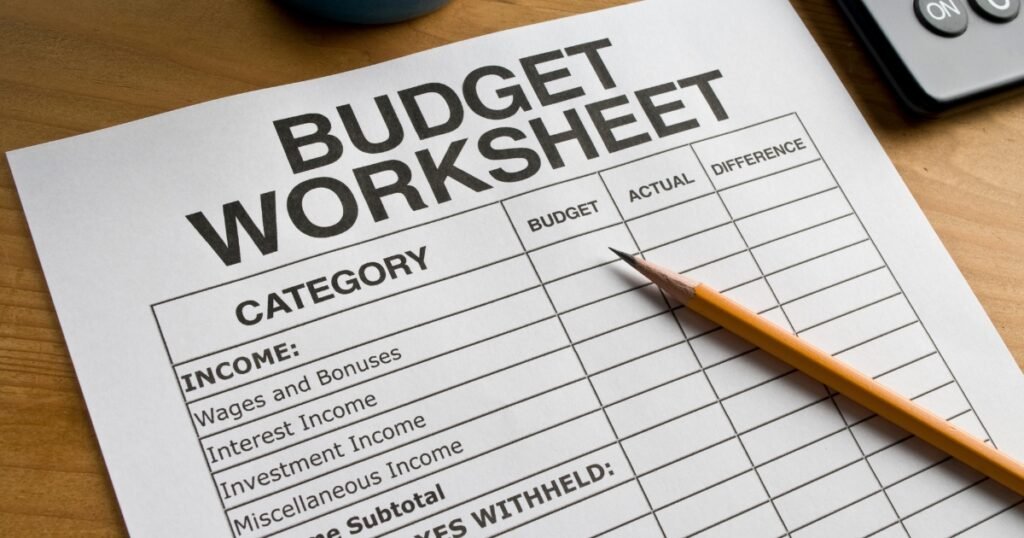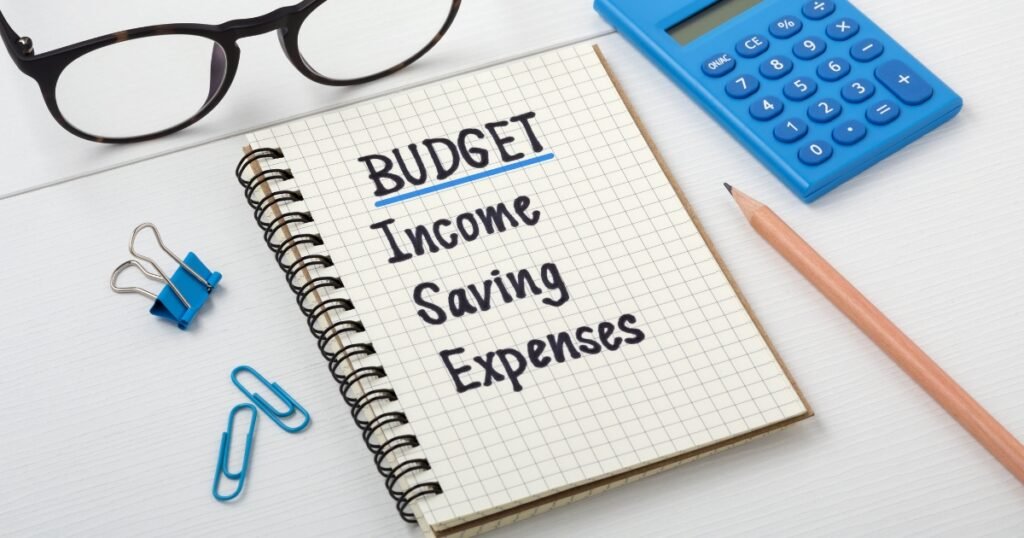Last Updated on 24 June 2024
Budgeting is a crucial life skill that every teenager should learn. While it may not be at the top of their priorities, budgeting can significantly impact their financial future. Teenagers may focus more on school, their social lives, and what they will do after high school. However, starting to budget now can set them up for financial success later in life.
Budgeting allows teenagers to learn how to save money. By setting aside some money each month, they can develop the habit of saving and build a solid financial foundation. It also helps them differentiate between their needs and wants, making them more mindful of their spending. Additionally, budgeting allows teenagers to prepare for future expenses, such as college tuition and other costs.
One effective tool for helping teenagers with budgeting is a budget worksheet for teenagers. A budget worksheet provides a structured format for tracking income, expenses, and savings goals. It helps teenagers identify their sources of income, track their weekly and monthly expenses, set financial goals, and plan for future expenses. By using a budget worksheet, teenagers can better understand their financial situation and make informed decisions about their money.
Allowing teenagers to manage their budget using a budgeting worksheet designed for them is a great way to help them feel in control of their finances and only spend what they can afford. This free budget worksheet for teenagers is a great starting point for managing their money and can be used to track expenses, set savings goals, and plan for the future.
Essential Components of a Budget Worksheet for Teenagers
A budget worksheet for teenagers is a valuable resource that can help them develop essential financial skills. It typically includes several crucial components for effective budgeting. These components include identifying sources of income, tracking weekly and monthly expenses, setting financial goals, understanding needs vs. wants, and planning for future expenses. The worksheet is available in downloadable PDF format for easy access and use.
Identifying Sources of Income
Identifying sources of income is an important step in creating a budget worksheet for teenagers. Teenagers may have various sources of income, such as an allowance from their parents, earnings from part-time jobs, or money earned from babysitting or other odd jobs. By listing their sources of income, teenagers can get a clear picture of how much money they have available to allocate towards expenses and savings.
Tracking Weekly and Monthly Expenses
Tracking weekly and monthly expenses is a crucial component of a budget worksheet for teenagers. It helps them understand where their money is going and enables them to make informed decisions about their spending. Some common expenses teenagers may have include food, clothing, transportation, entertainment, cell phone service, and hobbies.

By tracking their expenses, teenagers can identify areas where they may be overspending and find opportunities to save money. Here are some examples of expense categories that teenagers can include in their budget worksheet:
- Food (fast food, snacks)
- Clothing
- Transportation (car payment)
- Entertainment (movies, date night)
- Cell phone service
- Hobbies
Setting Financial Goals and Saving Strategies
Setting financial goals and saving strategies is essential to budgeting for teenagers. It helps them develop a sense of purpose and motivation when managing their money. Teenagers can set short-term and long-term financial goals, such as saving for a new car, a trip, or college tuition. By incorporating these goals into their budget worksheet, they can allocate a portion of their income towards savings, set savings goals, and track their progress over time.
Understanding Needs vs. Wants
Understanding needs vs. wants is an important lesson teenagers can learn through budgeting. It helps them prioritize their spending and make informed decisions about their purchases. Teenagers often desire to keep up with the latest fashion trends or own the latest gadgets, but budgeting teaches them to differentiate between what they truly need and what they want. By considering their needs and wants when creating a budget, teenagers can make smarter choices about spending their money.
Planning for Future Expenses
Planning for future expenses is a crucial component of a budget worksheet for teenagers. It allows them to anticipate and prepare for upcoming financial obligations. For example, budgeting can help teenagers save money for tuition, textbooks, and other college-related expenses if they consider attending college. By setting aside a portion of their monthly income, they can gradually build up their savings and be better prepared financially when the time comes to cover these expenses. Planning for future expenses also encourages teenagers to develop a long-term financial mindset and consider their financial goals beyond their immediate needs.
How to Use a Budget Worksheet Effectively
Using a budget worksheet effectively is key to successful budgeting for teenagers. It involves regular budget reviews, adjusting the budget as financial situations change, and incorporating financial goal-setting into budget planning.
Engaging Teenagers in Regular Budget Reviews
Regular budget reviews ensure teenagers stay on track with their financial goals. By reviewing their budget regularly, teenagers can identify areas where they may be overspending or where they can save more money. It also allows them to adjust their budget as their financial situation changes, such as getting a raise or experiencing a decrease in income. Engaging teenagers in regular budget reviews helps them develop the habit of regularly assessing their financial situation and making necessary adjustments to stay on track with their goals.
Adjusting the Budget as Financial Situations Change
Financial situations can change over time, and teenagers must be flexible in their budgeting. By adjusting their budget as their financial situations change, teenagers can ensure that their budgets remain realistic and aligned with their current circumstances. For example, if they get a part-time job or receive a raise, they may need to allocate more money toward their savings or adjust their spending in other areas. Similarly, if they experience a decrease in income, they may need to adjust their budget to accommodate the change. By being adaptable and adjusting their budget, teenagers can maintain a balanced financial plan.
Incorporating Financial Goal-Setting into Budget Planning
Incorporating financial goal-setting into budget planning is an effective strategy for teenagers to stay motivated and focused on their financial objectives. When creating a budget worksheet, teenagers can set specific financial goals, such as saving a certain amount each month or setting aside funds for a particular purchase or experience. By including these goals in their budget planning, teenagers can allocate a portion of their income towards their savings and track their progress over time. This helps them develop a sense of purpose and motivation and provides a tangible measure of their financial success.
Benefits of Starting Budgeting Early
Starting budgeting early in life offers numerous benefits for teenagers. It helps them develop responsibility and independence and builds strong financial foundations for adulthood.
Developing Responsibility and Independence
Budgeting provides teenagers with an opportunity to develop responsibility and independence when it comes to managing their money. By taking control of their finances and making informed decisions about their spending and saving, teenagers learn valuable life skills that will serve them well in adulthood. Budgeting encourages teenagers to take ownership of their financial well-being and fosters a sense of responsibility for their financial decisions. It also empowers them to make independent choices based on their financial goals and priorities.
Building Strong Financial Foundations for Adulthood
Budgeting at a young age helps teenagers build strong financial foundations for adulthood. By developing good financial habits early on, teenagers are better equipped to navigate the financial challenges they may face. Budgeting teaches them the importance of living within their means, setting financial goals, and making wise financial decisions. It also helps them avoid the pitfalls of debt and financial mismanagement, ensuring a brighter financial future. By building strong financial foundations through budgeting, teenagers can set themselves up for long-term financial success and security.
Avoiding Common Financial Pitfalls
Budgeting is not just about tracking income and expenses; it also involves avoiding common financial pitfalls. One common pitfall for teenagers is overspending. It’s easy to get carried away with impulse purchases or peer pressure to buy the latest trends. By budgeting and tracking their spending, teenagers can become more aware of their habits and make more informed choices.

Another pitfall to avoid is relying too much on credit cards or loans. Teenagers must understand that using credit should be done responsibly and within their means. By budgeting and saving, they can learn to spend only what they have and avoid accumulating debt.
Lastly, teenagers need to prioritize their expenses and separate needs from wants. By budgeting, they can allocate their money towards essential expenses like food, transportation, and education while saving for future goals and wants.
Starting to budget early can lay a solid financial foundation for teenagers. By identifying income sources, tracking expenses, and setting saving goals, teens can develop responsibility and independence. Understanding needs versus wants and planning for future expenses are crucial to building good money habits. Regular budget reviews and adjusting financial strategies as needed help teenagers avoid common pitfalls. Parents can support their teens in budgeting by encouraging open conversations about money. Download our free budget worksheet to kickstart your teen’s financial journey. It is never too early to start learning about managing money effectively.









